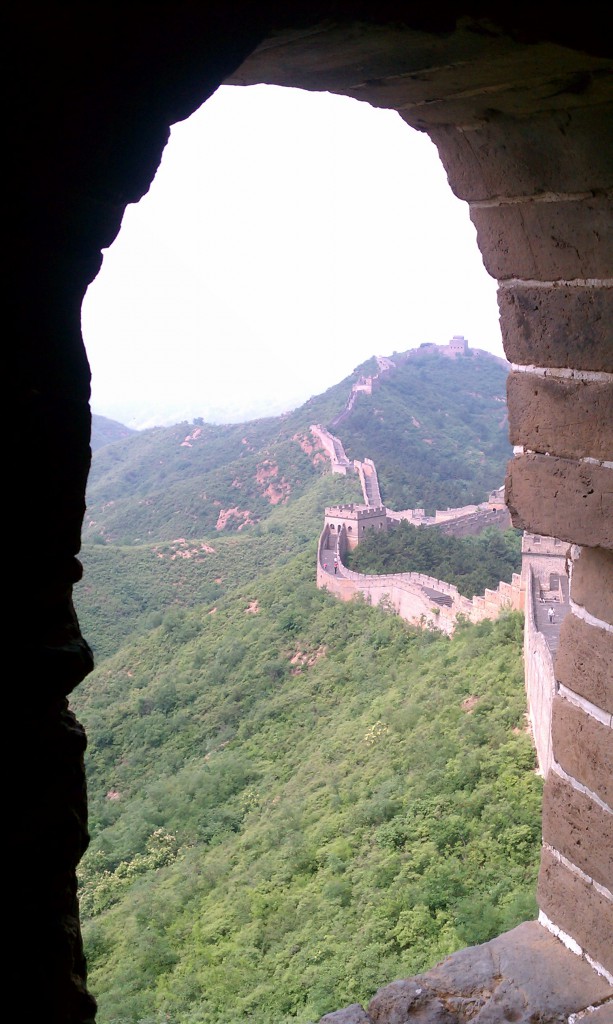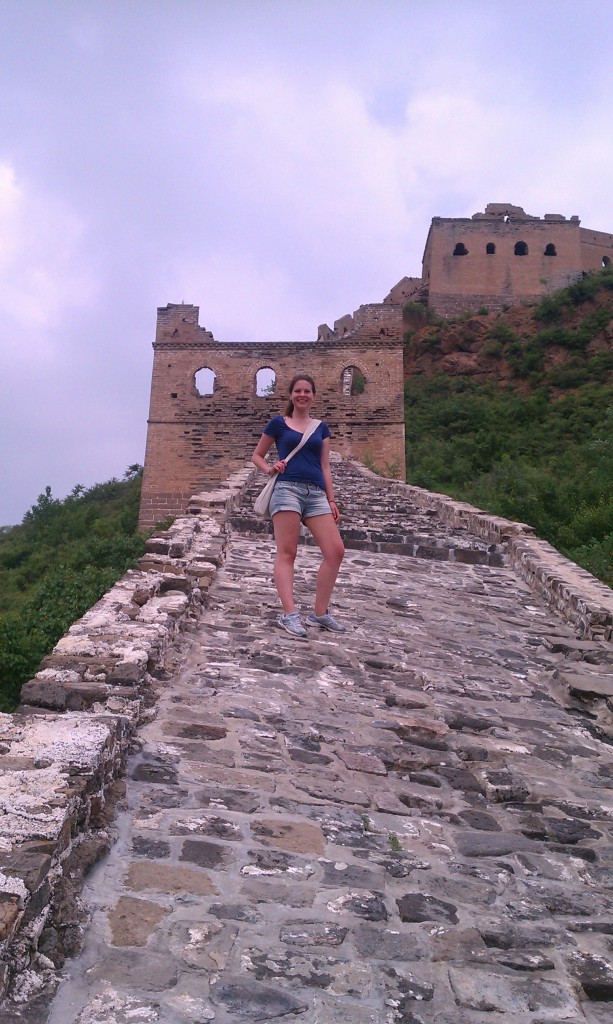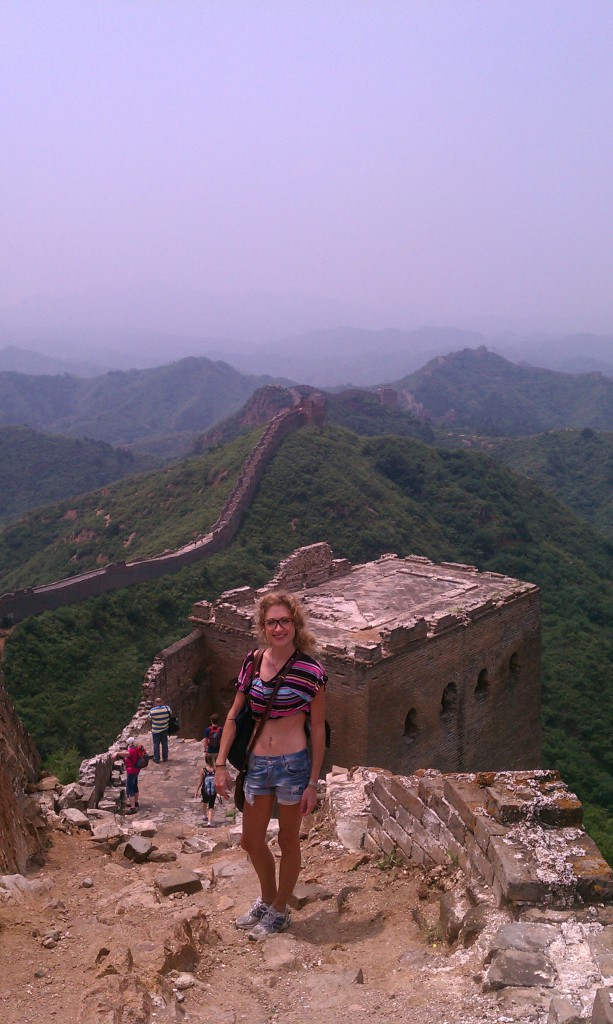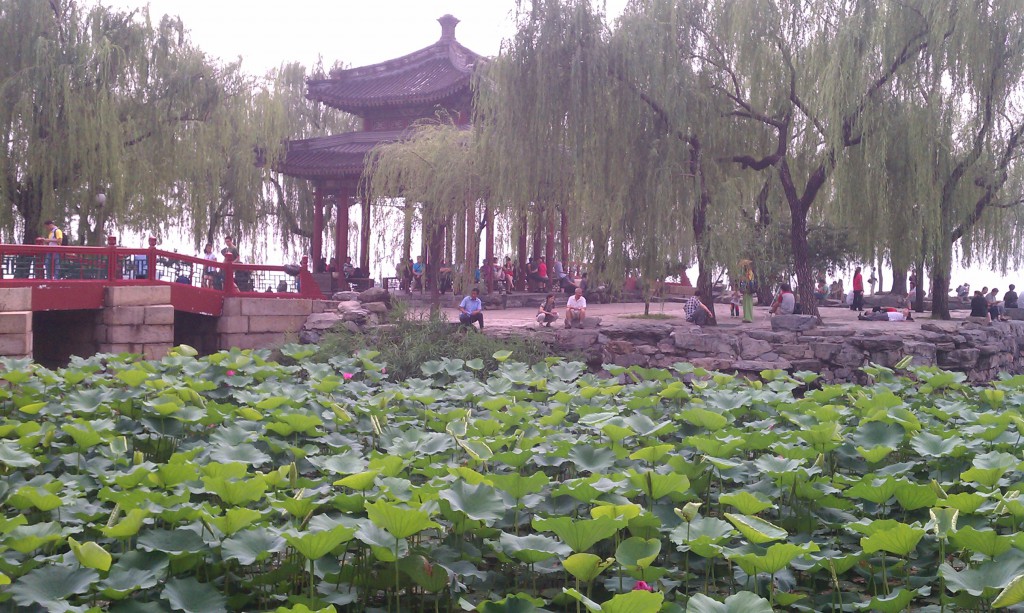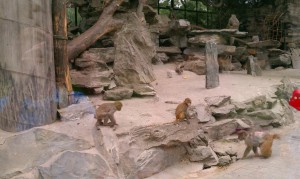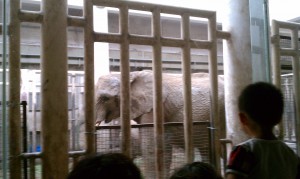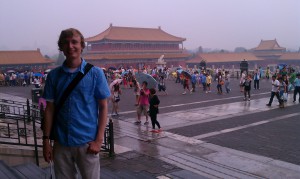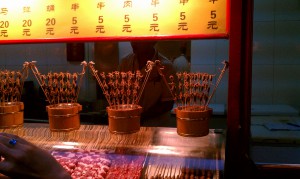By NICHOLAS KREBS, 6/30/2012. It has been 10 wonderful days in Beijing and am taking in a nice sunny afternoon in the garden cafe before I leave for Chengdu tomorrow. My time has been a mix of researching Chinese housing policy for the urban/rural poor and seeing all the great historical sites in the city. My Mandarin vocabulary has now increased to about 20 words, which isn’t very good progress, but at least is getting me through shopping encounters in a more polite fashion than earlier. The one word that I can’t seem to recall in conversation is milk (niunai), which would have come in handy every time Maria ordered 4 creams with her coffee.
Speaking of Maria, I ended up capitulating to Ma Meng’s constant introductions and met a wonderful woman to see all the sights in Beijing with. While I was doing fine for the first 3 days traveling alone, her companionship really helped get me out into the city to see all Beijing has to offer. She is a Swedish medical student, fast walker (very important while traveling) and loves to indulge hypothetical questions about silly scenarios, which are my favorite things to talk about. It feels so refreshing to find connection with someone far away from the New School, where I spend most my time and where it is very difficult to date anyone due to my hybrid status. And now that I have a taste of international travel under my belt, I’m looking forward to seeing her in Stockholm on a future journey. It has been sad since she left to finish her travels in Xi’an and Shanghai, but I think leaving for Chengdu tomorrow and working with the Habitat office will help.
Here are some impressions and pictures of the sites I’ve visited around Beijing:
Jinshanling Great Wall
The Jinshanling Great Wall is 3.5 hours away from Beijing and a bit spendy at 300 yuan per person ($50.00), but it was the highlight of the trip so far. Unlike closer sections of the wall which have been newly constructed or rebuilt (Badaling), the Jinshanling wall is untouched and undervisited by tourists. It was gorgeous and also a great opportunity to talk China with Sofia, who came to Beijing after finishing her India-China Student Fellowship work in Kumming. My favorite part of the trip is after you go up and down what seems like a dozen towers to get to the end of the section (Five-Windows tower), there are some lovely Chinese merchants ready with a cooler of cold beer. 10 yuan was quite expensive, but I probably would have paid any price :)
The Summer Palace
The Summer Palace made me think how lucky it must be for the rulers of some countries (past and present) that get to relax without being relentlessly attacked as asleep at the wheel by their political opponents. It is a huge expanse of a lake, gardens and magnificent architecture. Also learned that like many other things in Beijing, we played a role in the 19th century in destroying it with other invading forces. Funny how things like the Civil War and reconstruction didn’t occupy the US enough to avoid entangling ourselves in China.
Beijing Zoo
The Beijing Zoo was very large, but was a hard place to visit as the larger animals seemed to have smaller than normal habitats. Only the monkeys above seemed to have the habitat to run, jump and play. I felt really bad for the poor elephants especially:
I suppose American zoos aren’t much better though. They also had pandas, but like the zoo in Washington D.C., they seemed either very sleepy and/or single-mindedly focused on eating bamboo in places hard to photograph. I expect Chengdu will be a better place to see them at the research center.
Forbidden City
I have to admit, I didn’t care much for the Forbidden City. Maybe I was a bit tired because it was raining all day, but it just seemed too large and empty in a way that diminished its importance and awe. The one thing my visit to the Forbidden City made me think about though was how I really want to have a significant conversation about communism and modern China with some residents here. A lot of the buildings in the Forbidden City, along with buildings/monuments at other locations, refer to the nation building that was done to unify China. Although it is difficult to talk about politics in Beijing, I’d love to hear about what people think about China as a unified nation, and what role temples, religion and ancient sites have in a secular and more modern state. I think it will be enlightening as I genuinely have no opinion on most of these questions, and am just eager to learn what people think.
Silk and Night Markets
Anyone who wants to try their hand at Fear Factor food should visit the Wangfujing Night Market and have some scorpions! There is also delicious mainstream street food and some cheap Beijing duck for those who don’t want to shell out over 150 yuan for a sit down meal.
My favorite though was the Silk Market. It is a 6 floor building stuffed with little shops dealing in silk, electronics, clothes and pearls. Got some gifts for the family, but was especially excited to see that there were tailors onsite promising to make custom clothes on the cheap in one day. It is a noisy scene, with merchant after merchant harassing or touching you to enter their store. And once inside, one has to bargain for everything. Sometimes the merchant prices their items 2x what they should be, but other stores go as high as 5x, hoping to win the arbitrage battle with naive tourists. Thankfully I was with Maria, who was a force to be reckoned with at the Silk Market. I loved seeing the stages of negotiation, where most merchants ended up calling her a mean or evil girl before selling the goods at 1/4-1/5 the asking price. Let’s just say my tailored dress shirts would be 50 yuan more a piece if she wasn’t around.
But enough of sightseeing for now. I’ll be spending the rest of my time here evaluating the different energy consumption of rural and urban households, to determine if sustainability measures even make much sense in China. My initial research seems to indicate energy costs are not a significant portion of many Chinese citizens budget, which means that absent top-down mandates for energy efficiency, it could be hard to persuade people to weatherproof, insulate and do other improvements to their homes if coal provided energy is so cheap. The good news is that with so many Chinese buying appliances for the first time, the government has a huge incentive to act, as the growth of consumption in China will quickly become unsustainable as even a wealthy China won’t be able to secure the enormous energy resources required to convert Chinese citizens into American style consumers.

